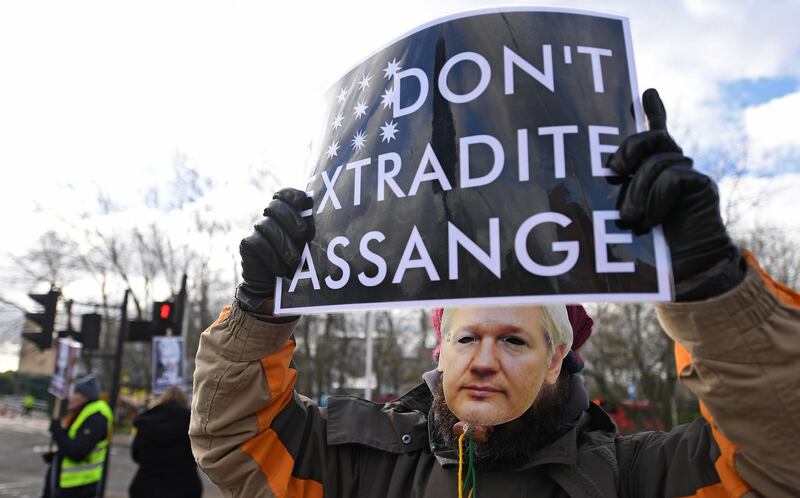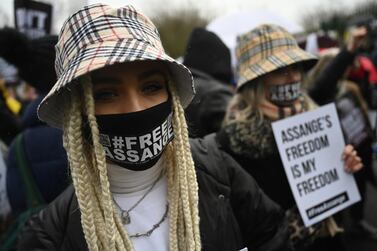Julian Assange will apply for bail on Wednesday because of concerns he is vulnerable to the coronavirus pandemic in prison, his lawyers said.
The WikiLeaks founder is being held at London’s Belmarsh prison, while he is fighting extradition to the US on hacking and espionage charges.
His extradition trial began in February and was adjourned until May but could be delayed further.
“Prisons are considered epicentres for the spread of Covid-19 due to overcrowding and the propensity of the virus to spread in closed environments,” campaign group Don’t Extradite Assange said.
Mr Assange faces up to 175 years in a US prison over the 2010 release of hundreds of thousands of top-secret military documents and diplomatic cables on his whistle-blowing site.
The Australian national has been in Belmarsh since he was arrested in the Ecuadorian embassy last year where he had been holed up since 2012.
He sought asylum after skipping bail following his arrest in 2010 as Swedish prosecutors sought to question him over rape and sexual assault claims against two women. The case was finally dropped three months ago because of the time it had taken to bring any potential case to court.
The bail application comes after a warning by the head of the Prison Governors Association that inmates could die of Covid-19.
“This isn’t rocket science: when you have a lot of people in close proximity, viruses will spread quite easily,” Andrea Albutt said in an interview last week.
There are many elderly people in prison, and the younger inmates live unhealthy lifestyles and have underlying health issues, she said.








